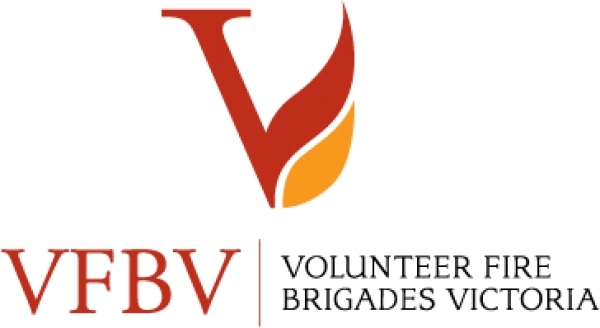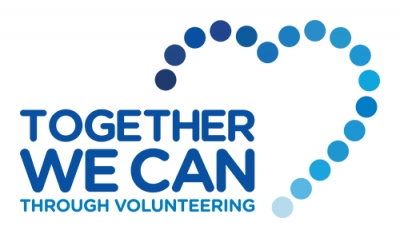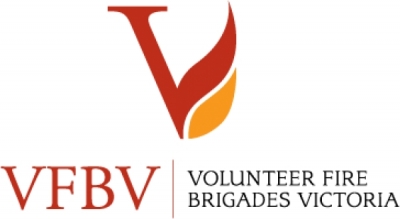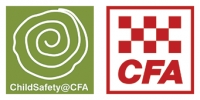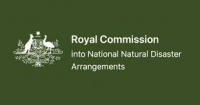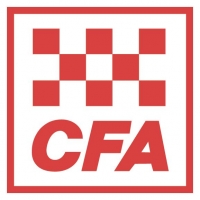
HomePage Featured (444)
Mooroopna to host all State Championships on consecutive weekends next March
Written by VFBVFor the first time in their history, all CFA / VFBV State Championship events are scheduled for the same venue on consecutive weekends in March 2021.
Planning is already well underway for Mooroopna 2021 to ensure the events are run in a COVID safe and child safe manner.
The Junior Urban Championships, which were to be held in Horsham, are now scheduled to be held at the Mooroopna Recreation Reserve in Mooroopna on Saturday 20 and Sunday 21 March.
The Senior Urban, and Senior and Junior Rural Championships will take place on Saturday 27 and Sunday 28 March 2021 at the same venue.
Brigades should start looking for accommodation immediately and make their travel arrangements in a COVID safe way. A list of accommodation is available on the CFA intranet.
More detailed information regarding accommodation and transport will be posted in the Championships section of the CFA intranet in coming weeks and will be updated regularly.
Due to COVID-19 restrictions, both weekend events will be classed as outdoor sporting events for CFA members / families and supporters / contractors / suppliers only.
CFA and VFBV would like to thank Horsham Fire Brigade and their Championships committee for their dedication and hard work in the planning and work done for the 2021 Championships. The Junior Urban Championships were held in Horsham in 2012, 2015 and 2020.
Acting Executive Director, Volunteers and Capability, DCO Peter O’Keefe said COVID-19 means significant changes will have to be made to the way the events are run.
“CFA and VFBV are working closely with the City of Greater Shepparton, the Victorian Department of Health and Human Services and the Chief Health Officer to ensure that the events are approved and can be undertaken in a safe way” he said.
“We are looking forward to making this a great opportunity for CFA members to reconnect after what has been a difficult time for many.”
VFBV CEO Adam Barnett said the decision to hold the Junior Championships in March, and a week prior to the Senior Urban & Senior and Junior Rural championships, is an unprecedented one.
“While this will be the first time all three State Championships have been held on successive weekends, it demonstrates the flexibility and agility that CFA members are renowned for, and how our service constantly adapts to any new challenges put before it.” he said.
“Championship events are an important part of who we are, our traditions and our commitment to firefighter safety. They play an important role in brigade discipline and morale as well as providing a terrific opportunity for members and families to come together to celebrate the incredible work that our volunteers do for their communities throughout the year.”
Further advice will be provided to coaches and teams to support them to hone their skills and teamwork ready for the Championships within current COVID-19 guidance and restrictions.
In the meantime, save these dates in your diary.
• Saturday 20 and Sunday 21 March 2021 - Urban Junior State Championships, Mooroopna Recreation Reserve, Midland Highway, Mooroopna.
• Saturday 27 and Sunday 28 March 2021 - Urban Senior and Rural Senior and Junior State Championships, Mooroopna Recreation Reserve, Midland Highway, Mooroopna.
Embracing Mission Command
By Adam Barnett, VFBV Chief Executive Officer
In last month’s column I referred to CFA’s ‘little red book’ and spoke of the contribution of CFA’s first full-time Chairperson Brigadier Richard Eason. As readers would be aware, I have long advocated a healthy respect for our past, and the fact that history provides context and objectivity to the present and should always inform our future. I love that adage of looking back to lean forward.
This doesn’t mean history or tradition should hold our future hostage, but a healthy respect, understanding and appreciation of our past ensures the hard lessons of our forebears are not wasted, and I often reflect on that old adage that those who don’t know history are doomed to repeat it. This has been particularly front of mind as we tally the significant loss of corporate knowledge leaving CFA over recent years and we embark on yet another ‘change’ journey.
One of the interesting things about the history of the little red book is that, while it is generally admired today, back when it was introduced it was controversial and there was pushback. It took several years for the dust to settle and for the strategies and tactics heavily influence by military doctrine to be accepted as relevant and appropriate for emergency management.
So too with Mission Command. The concept of mission command is not new, and in military terms dates back at least to the 1800s with the modernisation of the Prussian Army.
Mission Command is now widely adopted by the British, American and Australian defence forces to name just a few. Put simply, mission command is a concept of delegated command through clear and unambiguous understanding of the leader’s intent. It is a command and control philosophy that encourages the subordinate to exercise disciplined initiative within the leader’s intent to accomplish the objectives when faced with a dynamic and fast changing situation.
Within military circles, mission command was born from the truism that ‘no plan survives the first contact with the enemy’. This is just as relevant to emergency services as it is to the military.
If Eason was the father of the little red book, then ex- Chief Officer Euan Ferguson AFSM would be considered the father of Mission Command within CFA.
Euan was also responsible for promoting Mission Command to AFAC and its adoption by many fire services across Australia.
I was privileged in early 2011 to be approached early on by Chief Officer Ferguson who was seeking assistance to introduce mission command, and have CFA adapt and adopt it within the organisation’s operational doctrine.
And while early conversations with volunteers provided a broad and diverse level of both doubt and support, Euan did not give up and redoubled his efforts to educate and inform on the benefits to this command philosophy to the organisation.
Slowly it began to garner more and more support, and just as Euan intended, provoked thought, conversation and progression to better, safer and more effective command and control in emergency operations.
I also remember the good-natured ribbing we gave the Chief, who insisted on referring to mission command by its German translation of ‘Auftragstaktik’ emblazoned across the discussion papers. And while we joked that it looked like alphabet soup, I suspected Euan was very deliberately reminding us that this isn’t just some new fangled management speak, but a tried and tested philosophy worthy of our attention and adoption.
Sadly, it was thinking beyond its time. The progress and momentum of adopting mission command, and its direct links to strengthening the role of Group in local command and control arrangements was lost after Euan’s departure as Chief Officer. It is one of the great unfinished legacies we should grieve, and I’d suggest a part of our history that needs to be urgently resuscitated.
One of the reasons I so deeply admired Chief Officer Ferguson’s teachings on mission command was its potential to respect and maximise human creativity, initiative and diligence. At its heart was a philosophy that respected the human condition and acknowledged that doctrine should always enable and guide our response to emergencies - not hinder or frustrate.
When dealing with the criticisms of mission command and working to understand the perspective of its detractors, it was clear that it would take time to teach, embed and understand how the philosophies of mission command could best be adapted to the CFA context. It was widely accepted by Euan that mission command may not be applicable in every situation and has some limitations, but the benefits overwhelmingly outweighed the negatives.
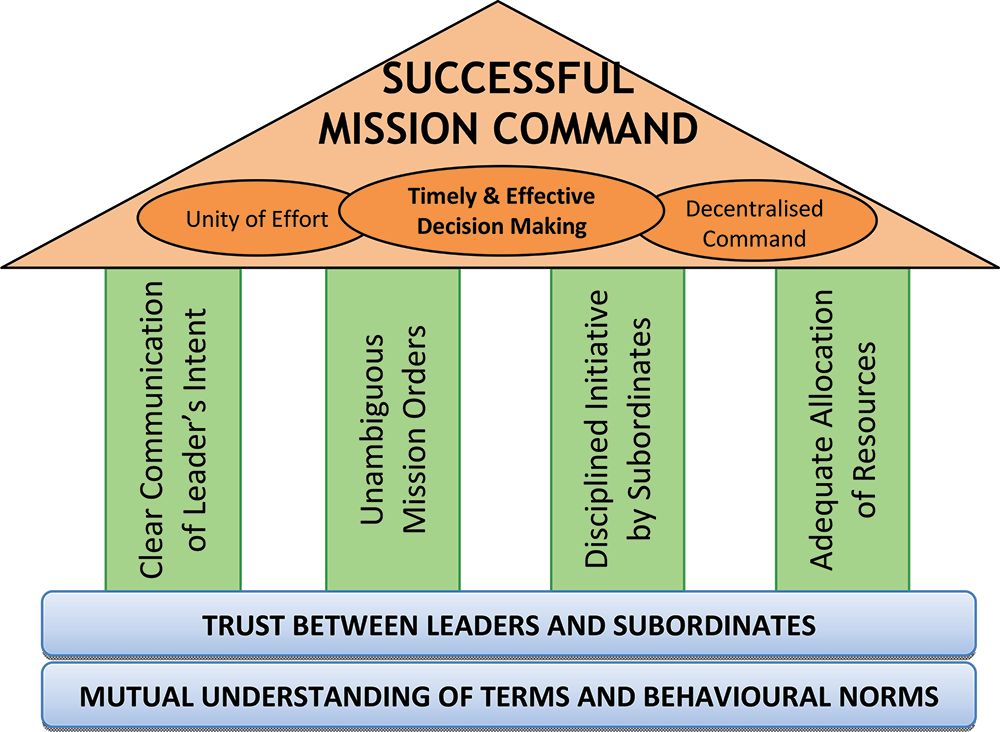
Interestingly, in all discussions there was a recognition that CFA would have to undergo significant culture change to successfully embed the principles of mission command. At its heart, mission command relies upon; decentralised decision making; unity of effort; mutual trust and understanding; clear objectives and leaders’ intent, and timely and effective decision making.
Anyone with any knowledge of CFA processes and systems of work would appreciate instantly some of the cultural improvements we would need to work extra hard at to overcome. One only needs to look at our Standing Orders (SOs) and Standard Operating Procedures (SOPs) to gain an appreciation for the shift required.
Mission command was intended to reduce, simplify and focus SOPs for example, one of the capstone layers of our operational doctrine. Instead, over recent years they continue to grow, not just in number, but in length and complexity. Additions have introduced magnitudes of prescription that couldn’t possibly be expected to survive engagement with the enemy (the fire).
I attended a volunteer forum recently where some joked that one of the few redeeming qualities that our current SOPs provide is the mountains of paper now required to print them all out. The rationale being that there is a forest somewhere in the world that has had some of its fuel load reduced through the printing of today’s paperwork!
So why this trip down memory lane?
Simply put - mission command is just as relevant today as it was in 2011. The culture change required to build respect, trust and unity of effort within CFA I would argue is just as important, if not more important than ever. There are still embers or vestiges of mission command left from its original adoption. The Chief Officer’s annual fire season intent statements are a good example.
And while mission command is most relevant to incidents, and especially large incidents, its concepts, frameworks and key principles are highly suitable and adaptable to local command and our work to strengthen the role of group and empower and trust senior volunteer leaders such as Group Officers, Captains and Lieutenants.
Think of it from a brigade perspective and imagine an organisational culture that respects and trusts each of its brigade leaders and empowers them to work within clearly defined objectives where they can maximise the capacity and capability of each CFA brigade. A brigade with the freedom to shape and reflect each of the diverse and unique communities across Victoria they inhabit, but simultaneously reflects a common set of values, hopes and unity of purpose in putting our communities first and defending and helping them prepare for the ravages of fire and other emergencies all the while making the brigade a satisfying and even enjoyable place to volunteer and work.
And this my friends, is probably why mission command stalled. It isn’t a doctrine or a control system. It most certainly isn’t a world with no rules or a metaphorical free for all. It is a philosophy. One that has been very successfully adapted by organisations much larger than ours, and one that enables a diverse group of people to come together and solve complex tasks.
Most importantly, it puts the human (with all our faults and otherwise) at the centre, empowering and trusting the individual to best solve the problems at hand.
I can think of no better philosophy to embrace as we take these next steps on CFA’s change journey. If we don’t embrace the people part of our organisation and rebuild the trust and respect by the corporate CFA to our brigades and its members, then these changes will be as fleeting as many others.
This is also a reminder that our history teaches us that change is difficult. That shouldn’t stop change from being proposed but should inform boards, executives and leaders of the vital role they play in ensuring change is well articulated, understood and informed by grass roots. We also need to accept change is inevitable.
Only when everyone respects that the journey is just as important as the destination, will people embrace and open their minds to change, and that change will be long lasting.
MERRY CHRISTMAS
May I wish all members and their families a very special Christmas and New Year.
While this year has been long and difficult, CFA and other emergency management volunteers continue to demonstrate their unwavering commitment to the safety of all Victorian’s.
And as we prepare for another fire season and sacrifice precious time with our loved ones in service of our communities, I extend a very genuine thank-you and well done for all your efforts. We are proud of you and wish for everyone a safe and well-deserved break over the holiday period.
But should you be called out please stay safe and know how grateful and appreciative the public are of your efforts.
2020 VolWEl Survey – Have your say today!

The 2020 VFBV Volunteer Welfare and Efficiency Survey is now open for all CFA volunteers to take part.
The survey is an annual snapshot of volunteer opinion that contains 33 questions on issue chosen by CFA volunteers and takes only 10 to 15 minutes to complete. It is a critical tool in monitoring short-and-long-term trends in volunteer opinion and the effectiveness of initiatives aimed at improving CFA volunteer engagement and wellbeing.
As we move through the fire services reform process, it is critically important that all CFA volunteers have an opportunity to provide their views and have their voice heard, participating in the survey gives all CFA volunteers the opportunity to have their say. The results from the survey will help keep VFBV informed and assist in our advocacy on behalf of all CFA volunteers.
Visit the VFBV website to take part or scan the QR code below to take part in the survey today.
If you know of CFA volunteers who do not have internet access, VFBV can post out a copy of the survey for them to complete. Please contact your VFBV Support Officer or the VFBV office This email address is being protected from spambots. You need JavaScript enabled to view it. or (03) 9886 1141 and we will post a copy.

Child Safety Consultation
A reminder that consultation over proposed changes to two CFA policies and one procedure, relating to improving Child Safety are underway.
The draft proposals include a proposed requirement for new members to complete a working with children check as part of their application process when they join. Copies of the draft documents are available for volunteer feedback and review and can be accessed through the VFBV website. VFBV will provide a formal response to CFA after reviewing volunteer feedback. All brigades, groups and individuals are encouraged to contribute to this review and provide feedback.
Feedback is due back to VFBV by 11 January 2021.
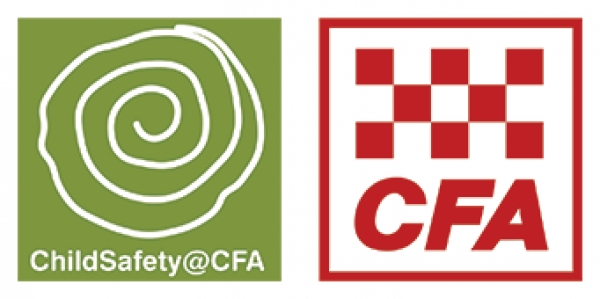
Welfare Fund Deadline
Brigades are reminded that 31st December is the deadline for paying this year’s Welfare Fund subscription. Subscribing ensures your members are protected in the likelihood of needing emergency financial assistance if they find themselves in hardship due to loss of work, family illness or accidental injury.
Under the Welfare Fund Rules if a Brigade fails to pay its Welfare Fund subscription and their membership lapses, there will be a one year waiting period imposed should the brigade decide to re-join in the future.
Therefore, it is incredibly important for the protection of your members, that Welfare Fund subscriptions are kept current with payments received by VFBV before 31st December each year. Please contact your Brigade Secretary to ensure your brigade is up to date.
Last financial year a total of $273,237 in Welfare Fund grants were paid to volunteers in severe financial need across the state, and the support of the Welfare Fund is always gratefully received by brigades, and volunteers in their time of need.
VFBV Quarterly Supplement
Included in the December edition of Fire Wise was the fifth edition of the VFBV Quarterly Supplement.
The Quarterly Supplement contains 16 pages of relevant news, updates and information on current issues being pursued by VFBV on behalf of members. It also includes links to additional resources or updates that are available via our website.
An electronic copy of the Quarterly Supplement can be downloaded here.
Brigade Captains and Secretaries, Group Officers and Group Secretaries as well as VFBV delegates are requested to please take the time to read this and future editions, and to table at your meetings for the benefit and knowledge of your members.
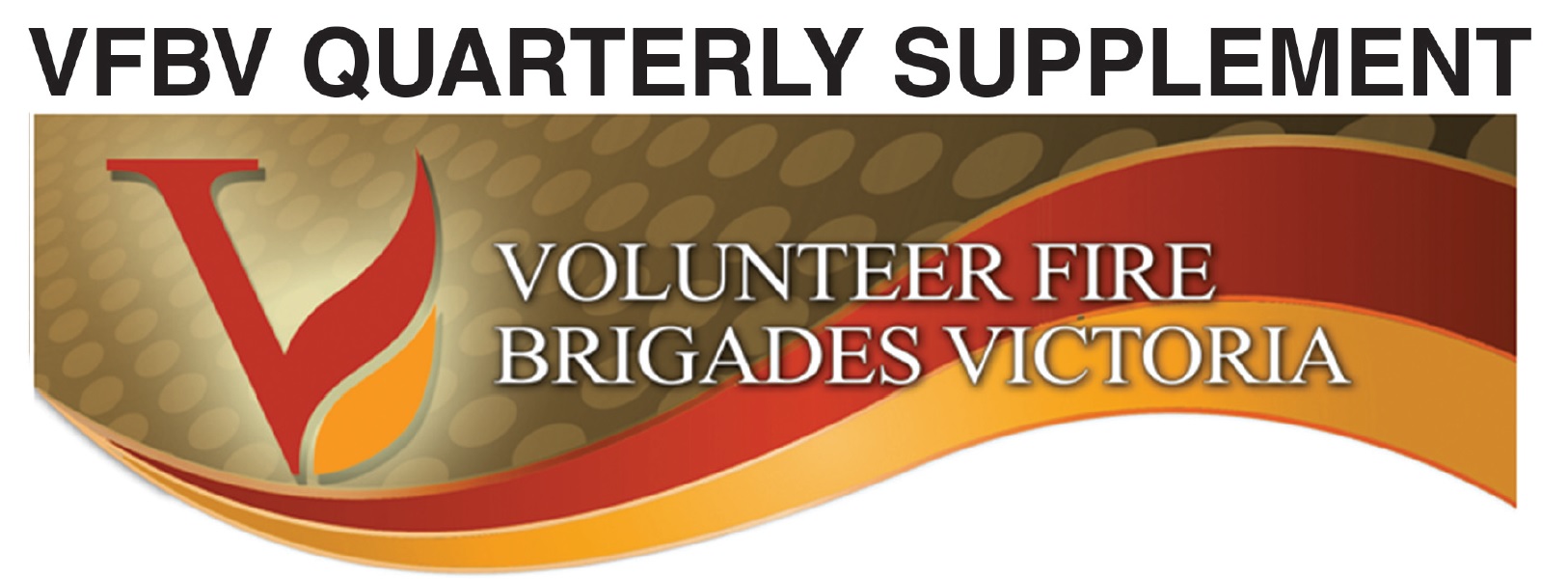
Replacement PPC
Each fire season VFBV deals with a small number of reports that volunteers applying for replacement personal protective clothing (PPC) items have difficulty. State Council has resolved a zero-tolerance approach to these issues and that any member who has been denied replacement PPC are to log the incident in CFA Safe and approach your local District Council who will then escalate with CFA as a matter of priority.
All operational members are entitled to have PPC that is fit for purpose and in good working condition. When approaching District Council, members are requested to have a record of who has denied the request, and as much date and detail information as possible so that appropriate action can be taken. Any rejected applications for replacement PPC should be requested in writing, and best endeavour used to escalate internally for resolution first.
In most cases VFBV officials have been able to resolve the issue quickly and at the local level to the satisfaction of the member involved. Brigade Officers are encouraged to report any instances where members have not been provided appropriate replacement items within reasonable timeframes.
General Firefighter
VFBV delegates to the working party on General Firefighter (GFF) have been happy to see that the program has been prioritised by CFA and is currently being delivered in different parts of the State with mostly positive feedback being received.
CFA has reported that over 800 members are already enrolled in more than 120 registered courses.
VFBV is continuing to work with CFA on the eLearning component of GFF to ensure the flexible and adaptable delivery of the program and has raised concern over expected timeframes. Delegates are still concerned that in some areas Districts have not been pro-active and haven’t been engaging with local volunteer Trainer and/or Assessors when organising much needed courses or engaging with Groups and Brigades to ensure that briefings and handover sessions are being completed and target at cohorts.
VFBV encourages Training officers who are unsure of what GFF is or the lack of courses to please raise this with your local delegate or VFBV District Council so it can be escalated to the Joint Training Committee.
Training Restrictions Easing
Many would be aware that COVID-19 has forced CFA into restricting many activities resulting in training acquisition courses being postponed or cancelled throughout 2020. It has been positive to learn that following public easing of restrictions, CFA skills acquisition courses can now start with CFA confirming that skills acquisition can go ahead throughout the summer period providing that there is maintained capacity and the training can be done in a COVID-Safe manner.
VFBV welcomes this news and will monitor the situation as we understand that many Brigades are finding that restrictions have created a backlog and the difficulty in being able to upskill members over recent months, especially in vital training such as Breathing Apparatus. VFBV can also confirm that CFA’s position is that skills acquisition training can continue throughout the Fire Danger Periods with CFA committing to ensuring that Instructors will be made available anywhere in the State when and where required.
2021 State Championships
Urban Juniors
Mooroopna, 20 and 21 March
Urban Seniors
Mooroopna, 27 and 28 March
Rural Seniors
Mooroopna, 27 March
Rural Juniors
Mooroopna, 28 March
State Junior Championship hosts
Any Brigades/Committees interested in hosting a State Urban Junior Championship during the years 2022 to 2024, are invited to lodge an Expression of Interest to VFBV. VFBV strongly encourages all Brigades/Committees to consider their ability and willingness to host a State Junior Championship to ensure the continuation of our competitions.
Expressions of Interest to be forwarded to This email address is being protected from spambots. You need JavaScript enabled to view it. or faxed to 03 9886 1618 by Friday 29 January 2021.
Any queries or information can be obtained from the VFBV office on 03 9886 1141 or to This email address is being protected from spambots. You need JavaScript enabled to view it.
Independent Advisory Committee - Applications Sought
Earlier this month, the Victorian Liberal/National parties announced the commencement of community consultation to engage directly with CFA volunteers and other key stakeholders in the development of its fire service policies.
As part of this broad consultation, they are establishing an independent CFA Advisory Committee chaired by the former counsel assisting the 2009 Victorian Bushfires Royal Commission and Ex-Supreme Court Judge the honourable Jack Rush QC.
The independent panel will provide recommendations on future policy informed by consultation with volunteers and extensive experience within Victoria’s emergency services. VFBV has been invited to nominate three suitably qualified and experienced CFA volunteers to participate on the independent panel.
In accepting the invitation to participate, the VFBV Board has noted that the panel is independent, all members are participating in a voluntary basis, and the panel sits outside any formal or established political or party frameworks ensuring its independence.
VFBV is apolitical and encourages bipartisanship on all matters involving the fire services. This means on matters that involve legislation and policy we strive to work with all parties and all sides of politics to represent the views, concerns, and aspirations of CFA volunteers. In much the same manner that VFBV participates in Government sponsored panels, committees and working parties, VFBV will consult with any parties that wish to support CFA and CFA volunteers. Our obligation under the Volunteer Charter is to act as the elected representatives of CFA volunteers on all matters which may impact upon them, and this includes future policy development. We have communicated with every sitting Member of Parliament several times this year already.
We are now seeking applications from any CFA volunteer who feels they could positively contribute to the independent advisory committee.
Applications need not be lengthy but should include a current resume (or half page bio), a summary of your CFA experience and achievements that will help you contribute, and a brief letter outlining:
- Rough estimate of the size and reach of your consultative networks
- How you inform yourself of broader CFA volunteer views outside your immediate Brigade
- A brief summary of key issues and topics you feel the Committee should consider
- And any further information you feel is relevant.
Applications should be addressed to:
VFBV
C/- Nominations Panel
9/24 Lakeside Drive
Burwood East VIC 3151
Or via email This email address is being protected from spambots. You need JavaScript enabled to view it.
Applications will close on the 15 January 2020. Further details are available on the VFBV website.
Get Involved
VFBV is the CFA volunteer peak body and the voice for CFA Volunteers enshrined within the CFA Act to advocate and represent volunteers on all and any issues that affect volunteers within CFA. VFBV have multiple structures in place from local level to State level to ensure that your voice is heard.
VFBV encourage all volunteers to access and complete the annual VFBV Volunteer Welfare and Efficiency Survey. This survey is a critical feedback loop and assists us to understand the areas that volunteers want us to advocate for. The results of the survey are public and are presented in detail to Government, EMV and CFA.
This year’s survey will be closing soon. Please visit the VFBV website to complete the survey, or use your phone camera to scan the QR code below to bring it up on your phone or tablet.
We also encourage all Brigades and members to get involved in local VFBV District Council and raise any and all issues that you are facing or ideas on ways to improve CFA. Issues raised or ideas can then be escalated locally or, depending on their nature raised at State Level Committees for advocacy directly with CFA leadership.
For example the VFBV Training Committee has advocated extremely hard on a large number of trainings issues and initiatives over the years and continues to reach positive outcomes with CFA to improve training for Volunteers.
We want to hear your issues and ideas and encourage you to raise these with your local VFBV District Councils in the first instance.

Recent articles on the VFBV website
NOW OPEN – 2020 VFBV Volunteer Welfare & Efficiency Survey
16 Days of Activism Against Gender-Based Violence
COVID-19 Financial Support Resources
Enjoy the VFBV monthly newsletter?
If you enjoy reading the VFBV newsletter each month, why not share it with your fellow volunteers?
Either share this page with others who may enjoy the articles or encourage other volunteers to sign up to receive their own copy each month here.
Independent Advisory Committee - Applications Sought
Written by VFBVEarlier this month, the Victorian Liberal/National parties announced the commencement of community consultation to engage directly with CFA volunteers and other key stakeholders in the development of its fire service policies.
As part of this broad consultation, they are establishing an independent CFA Advisory Committee chaired by the former counsel assisting the 2009 Victorian Bushfires Royal Commission and Ex-Supreme Court Judge the honourable Jack Rush QC.
The independent panel will provide recommendations on future policy informed by consultation with volunteers and extensive experience within Victoria’s emergency services. VFBV has been invited to nominate three suitably qualified and experienced CFA volunteers to participate on the independent panel.
Current members of the panel include:
Jack Rush QC, former Supreme Court Judge and Counsel assisting the 2009 Victorian Bushfires Royal Commission
Craig Lapsley PSM, former Victorian Emergency Management Commissioner
John Peberdy, former member and acting-chair of the CFA Board
Ev Duke, former member of the SES board
Adam Barnett, Chief Executive Officer of Volunteer Fire Brigades Victoria (VFBV)
In accepting the invitation to participate, the VFBV Board has noted that the panel is independent, all members are participating in a voluntary basis, and the panel sits outside any formal or established political or party frameworks ensuring its independence.
VFBV is apolitical and encourages bipartisanship on all matters involving the fire services. This means on matters that involve legislation and policy we strive to work with all parties and all sides of politics to represent the views, concerns, and aspirations of CFA volunteers. In much the same manner that VFBV participates in Government sponsored panels, committees and working parties, VFBV will consult with any parties that wish to support CFA and CFA volunteers. Our obligation under the Volunteer Charter is to act as the elected representatives of CFA volunteers on all matters which may impact upon them, and this includes future policy development. We have communicated with every sitting Member of Parliament several times this year already.
We are now seeking applications from any CFA volunteer who feels they could positively contribute to the independent advisory committee.
Applications need not be lengthy but should include a current resume (or half page bio), a summary of your CFA experience and achievements that will help you contribute, and a brief letter outlining:
- Rough estimate of the size and reach of your consultative networks
- How you inform yourself of broader CFA volunteer views outside your immediate Brigade
- A brief summary of key issues and topics you feel the Committee should consider
- And any further information you feel is relevant
Applications should be addressed to:
VFBV
C/- Nominations Panel
9/24 Lakeside Drive
Burwood East VIC 3151
Or via email This email address is being protected from spambots. You need JavaScript enabled to view it.
Applications will close on the 15 January 2020.
International Volunteer Day is held each year on 5 December, as a chance for volunteers and organisations to celebrate their efforts, share their values and promote their work. International Volunteer Day is mandated by the United Nations General Assembly.
The 2020 theme for International Volunteer Day is Together We Can Through Volunteering. This theme is designed to highlight the impact and value of volunteers during 2020 while also dealing with the impact of the COVID-19 pandemic on both their personal lives and their volunteering experience.
CFA volunteers have demonstrated how well they can adapt to change over the years, and in 2020 they have shown this more than ever. From the devastating 2019/20 fire season, to adapting to changes required due to COVID-19 restrictions, moving to online meetings and training, implementing new protocols, ensuring that CFA was still available to respond to emergencies when called upon and preparing for the upcoming fire season. This year CFA volunteers have shown that Together We Can Through Volunteering to ensure that their communities are protected 24 hours a day seven days a week.
Volunteer Fire Brigades Victoria (VFBV) CEO Adam Barnett said the extraordinary summer fires across Victoria and eastern Australia earlier in the year highlighted the invaluable contribution of CFA volunteers.
“Our volunteers rose to meet this challenge both locally and across the country,” Mr Barnett said.
“The coronavirus has changed the way we live in recent months, but we shouldn’t forget the massive effort of volunteer firefighters not only last summer and the next - but every day of the year.”
This past summer was one of the most challenging ever for CFA volunteers who played critically important roles in New South Wales and Queensland as well as their home state.
“Our volunteers individually show great courage, ingenuity, stamina and compassion, while collectively they have the agility, expertise and experience to tackle the most daunting challenges.
“The culture of dedicated and selfless service is a proud Australian tradition. Every CFA volunteer deserves thanks and recognition for the work they do in building community resilience for a safer Victoria.
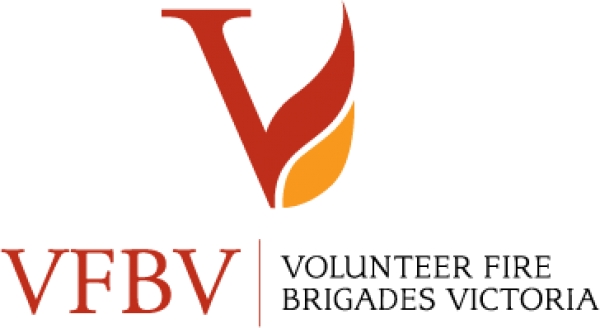 |
About VFBV: VFBV is established under the Country Fire Authority Act and is the peak body for CFA Volunteers in Victoria. VFBV works tirelessly to represent, advocate and support CFA volunteers to the CFA Board and management, governments, ministers, members of parliament, councils, instrumentalities, business and the public. Our vision is for Strong Volunteerism, Embraced to Build Community Resilience for a Safer Victoria. |
The United Nations initiative of 16 Days of Activism Against Gender-Based Violence begins on 25 November and runs until 10 December annually.
The 16 Days of Activism Against Gender-Based Violence begins on the International Day for the Elimination of Violence against Women and runs until Human Rights Day.
In 2020 Respect Victoria together with the Municipal Association of Victoria have launched a new campaign Respect Women: Call It Out ‘Respect Is’ to coincide with the 16 Days of Activism Against Gender-Based Violence. While the international theme is ‘Orange the World: Fund, Respond, Prevent, Collect!’.
To learn more about the Respect Victoria campaign Respect Women: Call It Out ‘Respect Is’ at the Respect Victoria website. The website includes helpful tips about how bystanders can intervene, prevention of gender-based violence and how to get involved in the campaign.
As part of the 16 Days of Activism Against Gender-Based Violence CFA is running Active Bystander training online on Tuesday 8 December 2020 from 7pm – 9:30pm. If you wish to register to attend email the Inclusion and Fairness team with your details - This email address is being protected from spambots. You need JavaScript enabled to view it.
Other ways you can take part includes increase your awareness and understanding of Gender-Based violence by:
- Taking the Gender Inclusion training module available to all CFA members via the CFA Learning Hub
- Visit Our Watch
- Visit Respect Victoria
If you have experienced sexual assault, sexual harassment or gender-based violence and would like to speak to someone for support and information you can call 1800 RESPECT (1800 737 732). 1800 RESPECT is a national sexual assault, domestic and family violence counselling service that is open 24 hours to support people impacted by sexual assault, domestic or family violence or abuse. You can also visit www.1800respect.org.au
CFA Member Welfare and Support
CFA has a number of support services that are available to provide additional support.
| CFA WELLBEING SUPPORT LINE |
|
1800 959 232 Providing CFA members and their immediate family access to 24 hour support 7 days a week. |
| Psychologists – Counsellors – Peer Support - Chaplains |
To view the complete range of services available to CFA members, visit www.cfa.vic.gov.au/wellbeing
Be an active contributor
By Adam Barnett, VFBV Chief Executive Officer
Many of you would be familiar with Brigadier Richard Thomas Eason and his introduction and contribution to CFA’s ‘little red book’ - a guide to Operations and Tactics in the field.
Eason was CFA’s first fulltime Chairperson and served as Chair between 1965 – 1978. He was renowned for his passion for training, and his strong defence of the virtues of integrity and unselfishness in leadership.
He said the basic function of a leader was to inspire PEOPLE to produce their best efforts, describing a leader as an individual who achieves identified goals through the work of others, without relying on his or her position of power. He said that technical ability in firefighting for example was of little use unless officers of all ranks could coordinate the human resources under their command.
Treating people with dignity and respect it was said, will always bring better results than patronising, and the ability to lead others depends on a personal trust which inspires members of groups to blend their individual skills and energies into a cooperative effort. This is just as relevant today as it was back then.
CFA relies on the good will, trust and mutual respect of all its people. These qualities of leadership articulated by Eason should not be lost, and again serves as an example of how our past should inform our future.
Perhaps less known, was the advice Eason gave to new members. Members of brigades were told they too had a responsibility. The responsibility to be an active contributor to the brigade and not just be a name on a book. He said it was only through active membership that members would be playing their part in maintaining an effective service for their community. And we all recognise there are many ways to contribute to a brigade.
So it is in this vein that I want to encourage every CFA volunteer to please contribute to this year’s volunteer survey, which is now open. We want to hear from you.
The annual VFBV Volunteer Welfare and Efficiency Survey is an initiative by VFBV, designed by and for volunteers to help capture and communicate fundamental issues as volunteers see them. It contains 33 questions on issues chosen by volunteers.
The survey is a critical and important tool that gives CFA and other decision makers clear feedback, directly from volunteers about the issues affecting them. It is a critical tool in monitoring short-and-long- term trends, and the effectiveness of initiatives aimed at improving CFA volunteer engagement and wellbeing.
Help us strengthen CFA’s future culture. The survey results not only help keep VFBV informed but assists with our advocacy on behalf of all CFA volunteers.
Please contribute and share your voice, and please don’t just leave it for others. Visit www.vfbv.com.au/cfa or scan the QR code displayed below with your phone to complete this year’s survey.

NEW CHIEF
On behalf of the VFBV Board, State Council and members I welcome the appointment of Jason Heffernan as CFA’s new Chief Officer. Jason will commence his role with CFA on the 30th November.
Jason comes to us from NSW, where he is currently an Assistant Commissioner of the NSW Rural Fire Service. Importantly, Jason has more than 20 years’ experience as a volunteer firefighter and has also recently acted as Deputy Commissioner.
He comes highly recommended by our friends in NSW and has demonstrated a proven track record in advocating strongly for volunteers and building sustainable volunteer capability and capacity in his RFS role as the Director for Response and Coordination.
I look forward to working with Jason during this critical period in CFA’s history.
I would also like to pay tribute to Acting Chief Officer Garry Cook.
Garry took on the role of Acting Chief at a critical time and has provided diligent and stable leadership during what can only be described as some of CFA’s darkest days. He has navigated recent months with calm and professionalism which has been testament to his strength of character and values. On behalf of CFA volunteers, I commend Garry on his stewardship and thank him most sincerely for his leadership and untiring commitment to CFA.
CHILD SAFETY
As many would be aware, VFBV introduced a Child Safe Policy back in early 2018. And while as an organisation the care or supervision of children is not part of our primary function or role, we felt it incredibly important to lead by example and to recognise child safety not just as a legal obligation, but as a moral one also.
In more recent times, the VFBV Board and myself worked with State Council to commit to an aspirational target of maximum density adoption of working with children cards for all senior state level VFBV officials. The intent was to not only lead by example but to demonstrate that volunteers will always respond better to change when it is done respectfully and in partnership. We used a risk-based approach to identify those roles where it was essential (such as officials officiating at State Junior Championships) and implemented immediate checks for those roles two years ago. We then actively encouraged the broader leadership to work towards our aspirational target.
I am pleased to advise that we have exceeded our target and achieved a 100% result across our entire state structures. In essence, this means every single VFBV Board member, State councillor and VFBV employee now holds a valid working with children card.
I want to congratulate the VFBV Board and State Council on the initiative and this outstanding result. It is a shining example of the commitment and values shared by VFBV officials and was done without any threats or fanfare and demonstrates the incredible value and effectiveness of volunteer inspired leadership.
Hopefully this assists to demystify the working with children check process for the broader membership and demonstrates that with the right approach - voluntary schemes can be just as effective as mandatory ones.
NSW SAYS THANK-YOU
The NSW Government has announced that it will be recognising 65,000 people involved in this year’s NSW bushfires by awarding a citation, certificate of recognition, a commemorative cap and a letter from the Premier acknowledging their contribution and service. Commissioner for Resilience (and Ex RFS Commissioner) Shane Fitzsimmons joins the premier as a signatory on the certificates and is quoted as saying “The NSW Bushfire Emergency Citation symbolises mateship, teamwork, volunteering and helping when times are tough.”
“They are a meaningful commemoration of a bushfire season we won’t forget and a symbol of the state’s gratitude.”
The NSW Government has committed to recognising all interstate members who contributed to the NSW campaign fires, and CFA has nominated members in accordance with the award criteria. The NSW Department of Premier and Cabinet is administrating the award, and members will be mailed directly later this month.
VFBV commends the initiative and thanks the NSW Government most sincerely for recognising the significant contribution made by Victorian firefighters during this year’s bushfires.
Victoria deployed over 2,500 personnel interstate last season, with the overwhelming majority of those being CFA volunteers. All this while battling our own fires in Victoria.
Members should be incredibly proud of their contribution to not just local communities, but our interstate ones also.
GOVERNMENT FUNDED CAMPAIGN
We have heard from many members this month incensed at the TV and print media campaign launched and paid for by the Victorian Government on behalf of FRV. These ads have run over the last couple of months stating that FRV is ready and prepared. The density of these adverts in areas predominately covered by CFA brigades have been the most offensive to many CFA volunteers who have felt completely overlooked and have rightly asked why the government would only be funding a campaign for one fire service (FRV) and not a dual badged campaign letting all Victorians know their volunteer and career fire services are equally ready.
And in my conversations with volunteers it is clear they don’t begrudge our career counterparts some recognition, but blind Freddy could see how insensitive and offensive the campaign is of CFA and the vital contribution of over 50,000 hardworking CFA volunteers following one of Australia’s worst fire seasons.
It reflects very poorly on the Government to be so blatantly one-sided and sadly is yet another example of the disdain and lack of respect for the incredible work being done by all firefighters (volunteer and paid) ahead of this season to train, prepare and plan. Shame on them for once again trying to pit one service against the other.
To my fellow volunteers, please don’t be disheartened. The Victorian public and community are well aware of your role and professionalism. They are behind you and they recognise, value and respect the work you do.
And to the broader audience, let me be crystal clear. CFA and CFA volunteers are always ready. We and our career brother and sisters will do all we can to work together and keep Victorians safe, despite the horrible mess the government has left for us to clean up. We will step up this year, like we have in all previous ones. Despite all the disruption and chaos being inflicted on our senior levels and ranks – CFA’s 1,219 brigades are ready and are prepared.
We are training, maintaining our equipment and reviewing our operational preparedness to maintain our full-time on-call operational readiness 24/7. Shame on anyone who by deed or omission tries to pretend otherwise.
And as I started this month’s column with some words from Brigadier Eason, I felt it only fitting that I end with some. I came across a contribution made by Eason in Volume 137 of the Australian Army Journal printed in 1960.
In it, Eason - a staunch ally of volunteer reservists - reacts angrily to what he felt were unfair criticisms of the Citizen Military Forces, which today we know as the Army Reserve.
The very last paragraph of his contribution was a powerful and inspiring defence of CMF and reservists. I have taken the liberty and artistic license to change and adapt his closing words for today’s CFA context:
And now let me state a most vital thing. If anyone wishes to make the demise of the CFA as a firefighting force sure and certain, then just let it be believed that Victorians cannot count or rely on their CFA volunteer brigades.
In conclusion, I would like to point out that all recent fire seasons show the standards reached by volunteer firefighters. They actually built the firefighting traditions of this country. They have not yet let down the CFA, Victoria, Australia or the Realm, and they do not intend to do so in the future.
Trafalgar & Westbury Volunteer Concerns Ignored
On the 16th October 2020, the Police and Emergency Legislation Amendment Bill 2020 passed its third and final reading in the Legislative Council, effectively now making these changes law.
Members would remember that the Trafalgar and Westbury CFA volunteer brigades were requesting support for amendments be made to the Bill to stop this Bill from expanding the FRV Fire District until sufficient consultation had occurred with them, and that the Government follow its own legislation introduced through its Fire Services reform only last year that promised future changes to boundaries would only be done after detailed analysis by an independent fire district review panel.
Sadly, not only has the Government not followed its own process, but government ministers and MPs have refused these brigades requests to even come and meet with them to discuss their concerns.
The State Opposition introduced an amendment to the Bill that satisfied the brigades and VFBV requests and would have ensured the government follow its own laws. This amendment was defeated by one vote.
Thank-you to all brigades and members who supported the Trafalgar and Westbury brigades by writing to their local MPs. This support was critical in securing the oppositions amendments, and wide support by the cross bench.
Thank-you also to all parties who supported their CFA volunteers by voting for the amendment, and standing up for due process and fair treatment, and requesting that the Victorian Government should keep its promises and follow its own legislation that dictated consultation and an independent process.
Thank-you to the following parties who supported their volunteers and voted for the rule of law and the right for volunteers to be consulted:
- Derryn Hinch’s Justice Party (Stuart Grimley & Tania Maxwell)
- Liberal Party (10 votes)
- Liberal Democrats (David Limbrick & Tim Quilty)
- Shooters, Fishers & farmers Party Victoria (Jeff Bourman)
- Sustainable Australia (Clifford Hayes)
- Transport Matters Party (Rodney Barton)
- The Nationals (Melina Bath)
- and independent Dr Catherine Cumming
The following parties voted against the amendment and chose not to support volunteers:
- Australian Labor Party (17 votes)
- Animal Justice party (Andy Meddick)
- Fiona Patten’s Reason Party (Fiona Patten)
- Victorian Greens (Dr Samantha Ratnam)

VESEP Support
A reminder that the closing date for the 2020 Volunteer Emergency Services Equipment Program (VESEP) is the 16 November.
VESEP provides grants of $2 for $1 of Brigade/Group funding to assist Brigades and Groups in acquiring a wide range of ancillary equipment in recognition of your significant contribution in supporting Victorian communities in times of emergency.
The program started back in 2000 as CSESP (Community Safety Emergency Support Program), in close consultation with VFBV, as a way of recognising the incredible commitment volunteers have to their communities.
VFBV recognised the benefits to volunteers in having an annual grants program with an application process that was easy to follow with minimal paperwork and local input.
VFBV has refreshed our VFBV Application Help Pack and the pack is now divided into easily downloadable sections for your convenience. Visit the VFBV website to download your copy. If you require assistance with your Application please contact your VFBV State Councillor, VFBV Support Officer or VFBV Office.
VFBV wishes all Brigades and Groups well with applications.
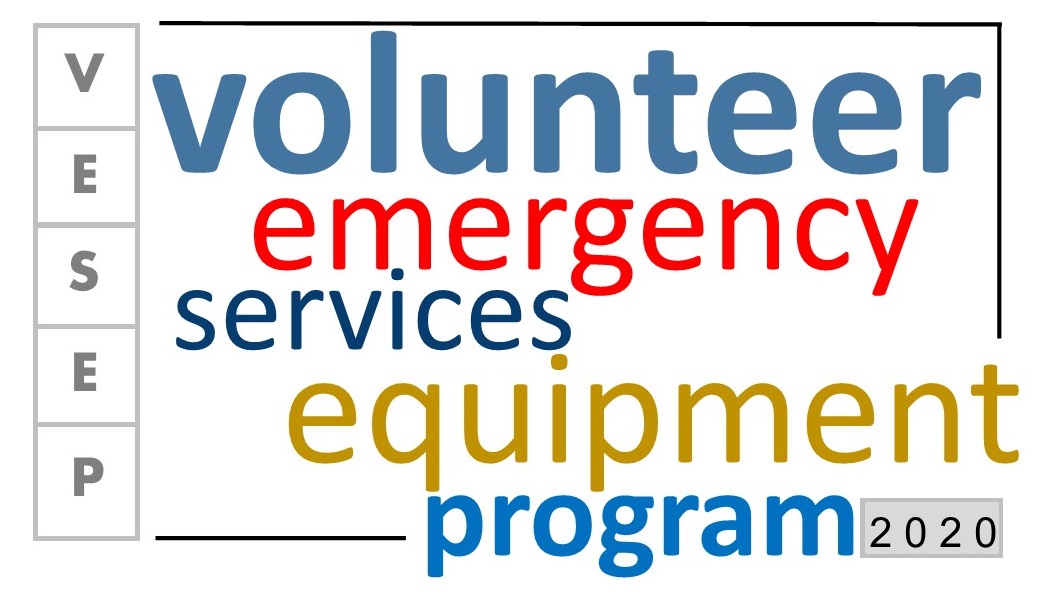
VFBV’s AGM
As previously advised, in line with current Victorian Health Guidelines issued under Victoria’s State of Emergency and advice from Consumer Affairs Victoria, the VFBV Board authorised a three-month extension and postponement of our annual AGM to the 6th December 2020.
Due to the likely short notice in easing of restrictions, this year’s AGM will be a low-key affair and there will be no guest speakers.
To comply with health guidelines and contact tracing requirements, any delegates intending to attend this year’s AGM are required to register their details with the VFBV office by the 30th November 2020.
The office can be reached via (03) 9886 1141 or via email at This email address is being protected from spambots. You need JavaScript enabled to view it.
Royal Commission
VFBV welcomes the release of the Commonwealth’s Royal Commission into National Natural Disaster Arrangements final report.
The Commission’s final report makes 80 recommendations to improve Australia’s national natural disaster arrangements. These recommendations are welcomed by VFBV and are regarded as sensitive, pragmatic and common-sense recommendations that will serve Australia’s disaster arrangements well. Many of the recommendations are strongly supported by VFBV evidence, witness testimony and volunteer views put to the Commission during its deliberations.
We look forward to engaging with the relevant State and Commonwealth governments as the recommendations are progressively adopted and implemented.
A copy of the final report is available from the VFBV website.
Consultation on Child Safety
CFA has commenced formal consultation over proposed changes to two CFA policies and one procedure, relating to improving Child Safety.
The draft proposals include a proposed requirement for new members to complete a working with children check as part of their application process when they join. Copies of the draft documents are available for volunteer feedback and review and can be accessed through your local VFBV District Council or VFBV Support Officer. VFBV will provide a formal response to CFA after reviewing volunteer feedback.
All brigades, groups and individuals are encouraged to contribute to this review and provide feedback. Please visit the VFBV website for further details.
Feedback is due back to VFBV by the 11th January 2021, but much sooner if possible.

Fire Wise Publication – Important Message from the Managing Editor
The widespread impact of COVID-19 on virtually every individual and business, including the printing and distribution industries, has resulted in Fire Wise making some changes for the current edition.
The October and November editions of Fire Wise have been published online only and these, and past editions, are available on the Fire Wise website.
Your continuing support of Fire Wise (previously ‘The Fireman’) and the role it plays as an independent voice in keeping volunteers informed, is especially important during this period. We know that the publication has played a vital role in sharing opinions and views of volunteers from across the State during previous challenges and threats to CFA, and we are committed to continuing to fulfil this vital role.
To enable us to do that is important that you continue your readership and subscription. Subscription rates will increase later in the year so take advantage of the current rate.
If you are not a current subscriber you can visit the Fire Wise website or phone 0402 051 412 or email This email address is being protected from spambots. You need JavaScript enabled to view it.
Gordon Rippon-King
Managing Editor
Recent articles on the VFBV website
NOW OPEN – 2020 VFBV Volunteer Welfare & Efficiency Survey
Planning for CFA/VFBV Firefighter Competition and Championship Season
VFBV welcomes new CFA Chief Officer Jason Heffernan
COVID-19 Financial Support Resources
Enjoy the VFBV monthly newsletter
If you enjoy reading the VFBV newsletter each month, why not share it with your fellow volunteers?
Either share this page with others who may enjoy the articles or encourage other volunteers to sign up to receive their own copy each month here.
These resources are being regularly updated and revised as new information becomes available.
Updated 13 January 2021 to include recent changes to restrictions. Updated 17 December 2020 to include recent changes to CFA activities. Updated 13 November 2020.
Information on Financial Support and Resources can be found separately by clicking here.
Coronavirus hotline
If you suspect you may have the Coronavirus disease (COVID-19) call the dedicated hotline on 1800-675-398 – open 24 hours, 7 days.
Federal (Commonwealth) Updates
This site is regularly updated to give you the latest Coronavirus news, updates and advice from government agencies across Australia https://www.australia.gov.au/
Victorian Updates
The Department of Health and Human Services provides an authoritative source of information, updates and advice about the outbreak of COVID-19. This page includes information on current restrictions, and information sheets outlining the facts, symptoms, resources and advice. https://www.dhhs.vic.gov.au/coronavirus
Victoria’s Current Restriction Levels
Information about Victoria’s current restriction levels can be found on the Department of Health and Human Services Website https://www.dhhs.vic.gov.au/victorias-restriction-levels-covid-19
CFA Wellbeing Support
CFA Wellbeing Support Line 1800 959 232. More resources from CFA in relation to wellbeing can be found on Brigades Online https://www.members.cfa.vic.gov.au/mycfa/Show?pageId=MentalHealth
CFA Resources
The landing page for all CFA updates and resources can be found in the members area of Brigades Online. You can access it here.
Information available includes:
Chief Officer’s Statement of Intent
Latest Updates from CFA’s Pandemic Management Team
Guidance notes and Operational Bulletins
Resources and Work Instructions
Operations Bulletins and Guidance Notes:
CFA's Pandemic Management Team Recent Updates
Training and Skills Maintenance
Information on CFA training and advice including FAQs can be found online here.
Other Useful Resources
Department of Health and Human Services Daily Updates on COVID-19 in Victoria
https://www.dhhs.vic.gov.au/coronavirus-covid-19-daily-update
Federal Government Fact Sheets
https://www.health.gov.au/resources/collections/novel-coronavirus-2019-ncov-resources
Consumer Affairs Victoria
Includes useful information regarding: Tenants, Evictions, Incorporated Associations, Financial Obligations, Coronavirus scams
CFA has commenced consultation on the following 2 draft policies and 1 procedure -all relating to Child Safety.
All brigades, groups and individuals are encouraged to contribute to this review and provide feedback.
These three documents are available for download from the bottom of this page. They are being shared by CFA without prejudice for the purposes of consultation, and we are now seeking volunteer views and feedback to assist with the formation of a VFBV position and response to the three draft documents.
CFA's Child Safe policy framework has been informed by the following:
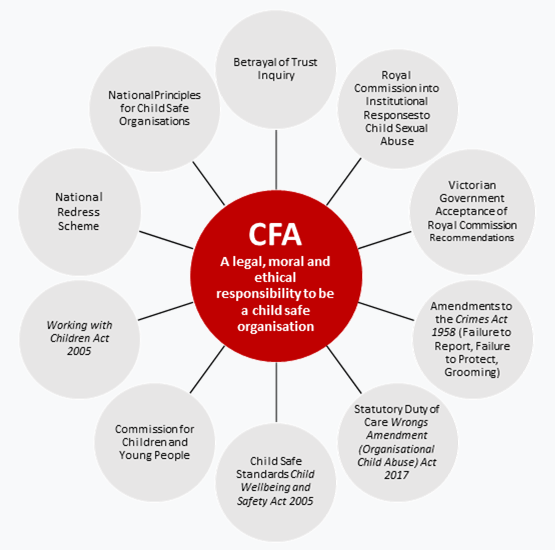
Outline of the three documents that are currently available for consultation:
1. Child Safe Executive Policy
This is a high level policy that confirms CFA’s commitment to child safety and sets out the principles CFA will use in its approach to Child Safety.
2. Working with Children Checks for New Engagements Executive Policy
This and the corresponding procedure will be of most interest to Brigades.
This policy proposes that as of 1 February 2021, that all new CFA employees and volunteers joining the organisation from this date forward will be required to apply for a Working with children card as part of their application process, and will be a material condition of ongoing employment and membership.
3. Working with Children Checks – Procedure – Adverse notice received
This is a proposed procedure of what process will be followed when a member or CFA gets notified of an adverse notice in relation to their working with children check from the Department of Justice & Community Safety, and how it will be assessed and dealt with.
Feedback is requested no later than Monday 11th January 2021 – but much earlier if possible.
It would be preferred that members provide feedback ASAP, so that it can be received incrementally, allowing us enough time to consolidate, identify trends and research issues raised by members.
Feedback can be provided via:
- Your local VFBV District Council
- Emailing Executive Officer Mark Dryden via This email address is being protected from spambots. You need JavaScript enabled to view it.
- By Post: 9/24 Lakeside Drive, Burwood East VIC 3151
- By Fax: (03) 9886 1618
Feedback does not need to be long or detailed.
If you generally support the principle, then a quick note letting us know would be helpful. Similarly, let us know if you do not support it, or which aspects of it you don't support. Where indicating non-support, it would be helpful to understand the key reasons why, and even a couple of brief bullet points would be adequate. Likewise, if you would prefer to provide a more detailed response, or mark-up and suggest changes to the documents, all that would be welcome also.
Your feedback will assist us form a VFBV position and response to the proposed changes and help us advocate on behalf of CFA volunteers. Please consider getting involved, and providing us your feedback ASAP. Please remember to provide feedback in support as well as against. If we only hear from those who are against, it will be harder to determine the general comfort level of members with the proposals.
VFBV welcomes the release of the Commonwealth’s Royal Commission into National Natural Disaster Arrangements final report.
The Commission’s final report makes 80 recommendations to improve Australia’s national natural disaster arrangements.
These recommendations are welcomed by VFBV and are regarded as sensible, pragmatic and common-sense recommendations that will serve Australia’s disaster arrangements well. Many of the recommendations are strongly supported by VFBV evidence, witness testimony and volunteer views put to the Commission during its deliberations.
We look forward to engaging with the relevant State and Commonwealth governments as the recommendations are progressively adopted and implemented.
A copy of the final report is available from the Royal Commissions website via: https://naturaldisaster.royalcommission.gov.au/publications/royal-commission-national-natural-disaster-arrangements-report
The Royal Commission into National Natural Disaster Arrangements has issued the following media release:
ROYAL COMMISSION PUBLISHES REPORT
The Royal Commission into National Natural Disaster Arrangements has published its report.
The report makes 80 recommendations to improve Australia’s national natural disaster arrangements and make our nation safer.
Commission Chair, Air Chief Marshal Mark Binskin AC (Retd) said there was an important role for all levels of government in relation to managing natural disasters.
“While state and territory governments have primary responsibility, and accountability, for emergency management, we have concluded that Australia needs a national approach to natural disasters. This calls for the Australian Government to play a greater role than it currently does.
“Effective national coordination will be a critical capability in managing natural disasters on a national scale or with national consequences. Arrangements need to be clear, robust and accountable.
Over 35 days of hearings, the Chair and fellow Commissioners, Dr Annabelle Bennett AC SC and Professor Andrew Macintosh, heard from more than 270 witnesses, including:
- individuals directly affected by natural disasters
- current and former representatives of state and territory fire and emergency management agencies
- experts in a broad range of fields – for example, climate science, fire prediction, and the health impacts of bushfire smoke
- representatives of charities, industry peak bodies, and consumer groups, and
- senior officials from the Australian, state, territory and local governments.
“We have taken a principled approach that entrusts the implementation of our recommendations to the respective stakeholders. This approach ensures those who are best placed to effect improvements can do so.
“There are lessons for all of us arising from our inquiry. Governments, essential services providers, insurers, charities, communities and individuals should consider what steps they must take across all phases of natural disasters to improve national natural disaster arrangements.
“Progress on implementing our recommendations should be monitored, transparent and communicated nationally. Australian, state and territory governments need to commit to action and cooperate, and hold each other to account.”
The report is published on the Royal Commission’s website. https://naturaldisaster.royalcommission.gov.au/publications/royal-commission-national-natural-disaster-arrangements-report
STATEMENT
CFA has today announced the appointment of Jason Heffernan as CFA’s new Chief Officer.
Jason comes to us from NSW, where he is currently an Assistant Commissioner of the NSW Rural Fire Service. Importantly, Jason has more than 20 years’ experience as a volunteer firefighter, and has also recently acted as Deputy Commissioner.
He comes highly recommended by our friends in NSW and has demonstrated a proven track record in advocating strongly for volunteers and building sustainable volunteer capability and capacity in his RFS role as the Director for Response and Coordination. Jason has also previously served with NSW Police.
Jason will commence his role with CFA on the 30th November.
On behalf of the VFBV Board, State Council and members I welcome Jason’s appointment and look forward to working with him during this critical period in CFA’s history as we work together to shape a strong and effective volunteer based emergency service for all Victorian’s.
I would also like to pay tribute to Acting Chief Officer Garry Cook.
Garry took on the role of Acting Chief at a critical time, and has provided diligent and stable leadership during what can only be described as some of CFA’s darkest days. He has navigated recent months with calm and professionalism which has been testament to his strength of character and values. We commend Garry on his stewardship and thank him most sincerely for his leadership and commitment to CFA.
Sincerely,
Adam Barnett, Chief Executive Officer
Volunteer Fire Brigades Victoria.
 |
About VFBV: VFBV is established under the Country Fire Authority Act and is the peak body for CFA Volunteers in Victoria. VFBV works tirelessly to represent, advocate and support CFA volunteers to the CFA Board and management, governments, ministers, members of parliament, councils, instrumentalities, business and the public. Our vision is for Strong Volunteerism, Embraced to Build Community Resilience for a Safer Victoria. |
More...
NOW OPEN – 2020 VFBV Volunteer Welfare & Efficiency Survey
Written by VFBVThe 2020 VFBV Volunteer Welfare and Efficiency Survey is now open to all CFA volunteers.
CLICK HERE TO TAKE THE SURVEY.
The survey is an annual snapshot of volunteer opinion, which includes 33 questions on issues chosen by CFA volunteers.
The survey has become a critical tool in monitoring short-and-long-term trends, and the effectiveness of initiatives aimed at improving CFA volunteer engagement and wellbeing.
Last year, over 2,500 CFA volunteers took part in the survey and over 5,500 volunteers took part nationally in surveys offered interstate to fire service volunteers and VICSES volunteers.
All answers and comments are confidential, but the results go straight to the decision makers at CFA, Emergency Management Victoria and Government.
The survey takes 10 – 15 minutes to complete.
The survey continues to be an important and reliable method to capture the views of volunteers and track what has been achieved and is improving, as well as addressing areas that are the cause of dissatisfaction for volunteers. You can download a summary of last year’s results at the bottom of this page.
As we move through the fire services reform process, it is important that all CFA volunteers have an opportunity to provide their views and have their voice heard. The survey results will help keep VFBV informed and assist in our advocacy on behalf of all CFA volunteers.
VFBV is also working in partnership with the Victorian SES Volunteers Association (VicSESVA) to offer the Volunteer Welfare and Efficiency Survey to VICSES volunteers for the fifth time in 2020.
Once you have completed the survey yourself, please also share the survey with other CFA volunteers. The more volunteers that take part, the more impact the results will have. This is an important tool to measure and report on trends in CFA volunteer welfare and efficiency.
Due to the uncertainty and lack of brigade/group meetings due to COVID-19 arrangements, a closing date has not been set. Typically the annual survey remains open for approximately 8 weeks. We will monitor responses to gauge if there has been an interruption to the usual promotion of the survey, and a closing date will be advertised down the track as this becomes clearer. You are encouraged to undertake the survey at your earliest convenience and to help promote it amongst your fellow CFA volunteers.
If you have issues accessing the survey – please contact your VFBV Support Officer or the VFBV office This email address is being protected from spambots. You need JavaScript enabled to view it. We are also able to send out paper copies of the survey to members who do not have internet access, please contact the VFBV office on (03) 9886 1141 or This email address is being protected from spambots. You need JavaScript enabled to view it. to arrange a copy to be posted.
2020 Volunteer Welfare and Efficiency Survey available to VICSES volunteers
The Volunteer Welfare and Efficiency Survey is being offered again to VICSES volunteers through their volunteer association Victorian SES Volunteer Association (VicSESVA) in partnership with VFBV.
2020 will be the fifth time VicSESVA have participated in the survey (2015, 2016, 2017, 2019), this years survey will compare the results of the previous surveys to understand any trends that have emerged in volunteer opinion.
The survey will take 10 – 15 minutes to complete and all answers and comments are confidential and are analysed independently of VicSESVA. VicSESVA will then use the survey results and trends to advocate on behalf of VICSES volunteers to Government, VICSES and Emergency Management Victoria.
CLICK HERE TO TAKE THE SURVEY FOR VICSES VOLUNTEERS.
2020 Volunteer Welfare and Efficiency Survey available to NSW RFS volunteers
The Volunteer Welfare and Efficiency Survey is also being offered to volunteers from fire agencies across Australia. The survey has been a success in Victoria since 2012 and is being offered to fire service volunteers again this year through their respective representative volunteer associations as part of the Council of Australian Volunteer Fire Associations (CAVFA), this will be the fifth survey run for interstate fire agencies.
The survey was developed by VFBV to address significant gap in the information available to decision makers and over the years has become an unmatched guide to trends in volunteer opinions.
The survey will take 10 – 15 minutes to complete and all answers and comments are confidential, the results are analyses by VFBV independently of the volunteer associations and are also compared to provide a national snapshot of volunteer expectations and opinions.
CLICK HERE TO TAKE PART IN THE SURVEY FOR NSW RFS VOLUNTEERS.
Planning for CFA/VFBV Firefighter Competition and Championship Season
Written by VFBVPlanning for the 2020/2021 Firefighter Competition season and CFA/VFBV State Firefighter Annual Championships is well underway, with the goal of holding the events early in 2021.
Committees for the February 2021 Urban Junior Championships and the March 2021 Mooroopna Annual Championships have commenced meeting to plan the events within COVID-19 guidelines.
“Due to coronavirus there will be changes to the way we hold these events, but the important thing is that there’s a pathway for us to move forward to allow our people to come together and to do so safely,” Acting Executive Director Volunteers and Capability DCO Peter O’Keefe said.
“The safety of our members and families at these events will be our number one priority, so expect to see at a minimum a strong focus on physical distancing, hygiene and sanitising in public areas, cleaning of competition equipment, and the wearing of masks if they remain mandatory.”
VFBV CEO Adam Barnett said he is keen to see local competitions and the Annual Championships proceed provided they can be done safely.
“They are an important part of who we are and our traditions," he said. "They play an important role in brigade discipline and safety as well as providing a terrific opportunity for members and families to come together to network and enjoy each other’s company.”
The 2021 Championships will be CFA’s first since returning to a volunteer-focussed organisation.
The events will be an important opportunity to focus on the importance of CFA to our communities and ourselves.
Further advice will be provided to coaches and teams to support them to hone their skills and teamwork ready for the Championships within current COVID-19 guidance and restrictions.
In the meantime, put these dates in your diary:
Saturday 20 and Sunday 21 February 2021 - Urban Junior State Championships, BJ Reither Track Park Drive, Horsham.
Saturday 27 and Sunday 28 March 2021 - Urban Senior and Rural Senior and Junior State Championships, Mooroopna Recreation Reserve, Midland Highway, Mooroopna.
To keep up to date with the latest about the Championships, like VFBV's Championships Facebook Page or CFA's Championships Facebook Page.
Volunteer Empowerment and Feedback
By Adam Barnett, Chief Executive Officer
Volunteers run one of the largest and most expansive networks of volunteer consultative forums in the State. Through an interconnected network of 21 VFBV District Councils we provide an opportunity for all members to connect with this network at the local level, both through formal channels as well as informal ones.
The strength of this network lies in the fact that by design – it is run, led and managed by volunteers themselves. It is a beacon of volunteer ingenuity, commitment and professionalism and aptly demonstrates what volunteers are capable of.
Our District Council structures are closely aligned and complimentary to other CFA structures to avoid unnecessary duplication and the council’s endeavour to work in good faith and in close cooperation with other CFA processes to ensure our forums are connected at the State, Regional and District levels. Ultimately, this ensures these networks are well aligned and informed of volunteer views and offer CFA an invaluable opportunity to better connect and engage with volunteers. They also provide a wonderful opportunity for fellow volunteers to contribute, share their ideas and help solve some of the problems and issues other volunteers are experiencing.
And while others may bemoan the responsibility and courage required to speak truth to power in this age of big government, the volunteer associations have been diligently doing just that since the early days of Federation, well before CFA even existed and it was the local communities banding together to do whatever needed to be done. That is why our District Councils were quite deliberately established at arm’s length of CFA and embody the yin and yang paradox of simultaneous unity and duality.
And far from a theoretical exercise, our District Councils embody the principles of volunteer empowerment and trust. In fact, these highly organic, professional and deeply connected networks rely totally on the contribution and leadership of volunteers for volunteers. Each District Council is led by CFA volunteers drawn from the local brigades and groups. From District Council Presidents all the way to brigade and group delegates, every member of the District Council is a volunteer nominated by other volunteers. Each Council’s brigades and groups independently elect their own leaders and form a District Council executive who coordinate their own agendas, provide a regular forum for all local CFA volunteers to contribute and pursue and advocate the issues most relevant to them though the VFBV network.
Similarly, the VFBV State Council is led by the State President (also a volunteer) and entirely made up of CFA volunteer delegates, elected by each District Council. It is for these reasons that I consider our State and District Councils to be one of the most authoritative and trusted networks in the State.
Between the VFBV Board, State Council and our District Councils, almost 200 separate meetings take place each and every year to assist gather, discuss and debate volunteer views, ideas and concerns. And that figure grows exponentially when we start to include working parties, joint committees, and other processes we regularly run. The ability for anyone to raise an issue, suggest an idea or seek clarification on various topics is what ensures VFBV keeps informed on the issues most important to CFA volunteers. Our formal structures compliment the informal ones and include mechanisms that allow for peer review and brigade/group endorsement for difficult issues where volunteer views may be quite broad and diverse. I spoke last month about the importance of empowering volunteers, trusting them and engaging with them as equal partners to consider issues, challenges and opportunities and how this will be fundamental to volunteers rebuilding confidence and trust in CFA and ensuring it prospers and is restored to a confident and proud volunteer and community organisation of choice.
I also spoke about the fact that we have some really good existing consultative structures and processes in place that are simply not being used to their potential and are being hampered by a lack of accountability and commitment by CFA to properly engage with them.
Therefore, I have been very pleased to recently observe a renewed focus and attention led by some of the CFA Deputy Chief Officers of Regions to commence better engagement and connection with their local VFBV District Councils. I want to thank and acknowledge this terrific work being undertaken and encourage it to continue. This can only be a good thing and should continue to be encouraged and is hopefully a sign of a growing respect and appreciation for these critical volunteer structures and forums.
FEEDBACK
Within our suite of consultative mechanisms, the annual VFBV Welfare and Efficiency Survey is one of the most critical tools we use to gather targeted feedback direct from volunteers, and guides how we inform CFA of what is important to you, and the issues recording the highest and lowest satisfaction.
And while the survey creates a snapshot of volunteer views and perceptions at a fixed period in time, the successive surveys and annual consistency helps us track trends and monitor the success or otherwise of what is being done to rectify those areas. The sheer number of volunteers participating relevant to the sample size and the high level of consistency with other tools provides for an extremely credible source of information. The fact the survey is extended across every State in Australia though each State’s volunteer association provides an unrivalled perspective of Australia’s fire service emergency management volunteers.
We created the VolWEL indicator from measuring the gap between how closely performance meets the expectation of importance. The VolWEL outcome for each theme and question is a way to simply illustrate where things are working well or what needs attention. The higher the number – the larger the gap and therefore the higher the dissatisfaction. Any gap over a 2.0+ indicates a large to critical gap has emerged and requires immediate attention.
The most recent results show that all areas with gaps greater than 2.0 (where volunteers have been reporting the highest dissatisfaction) all got worse with each of these themes recording increasing levels of dissatisfaction when compared to the year before.
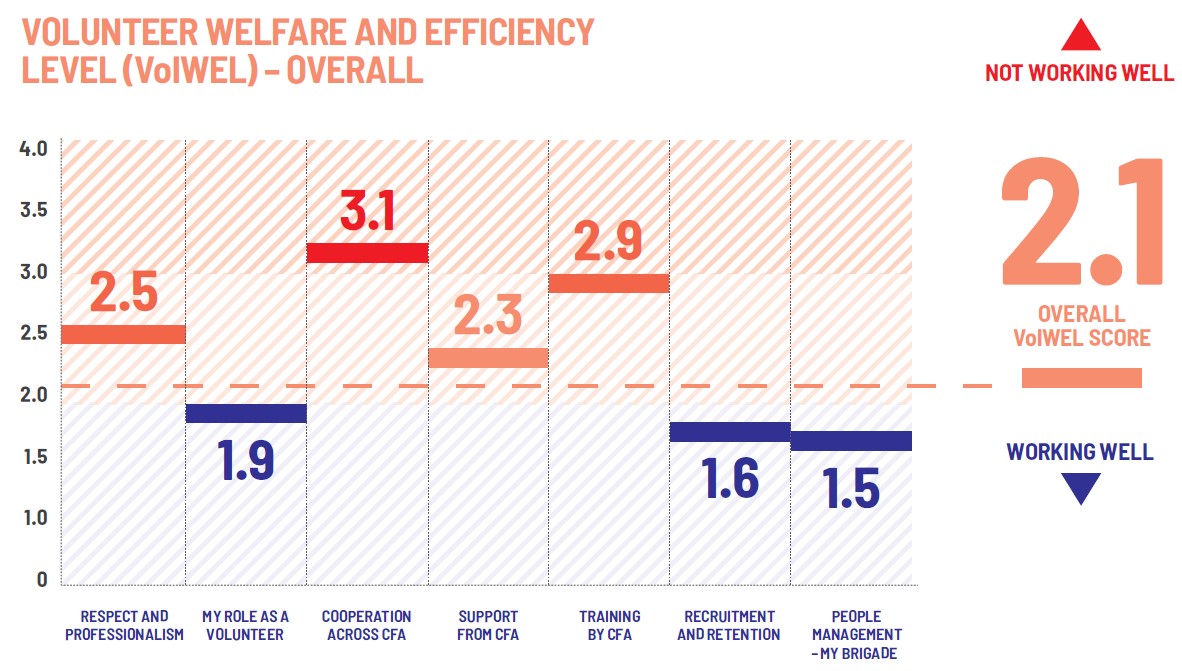
One observation of the results are that many of the areas that recorded the highest levels of satisfaction (and therefore have a lower VolWEL) are all areas where the decision making or responsibility is typically made closer to the brigade or group level.
This aptly demonstrates the direct relationship between better engagement and empowerment of volunteers leads to higher levels of trust, confidence and satisfaction amongst volunteers.
And this general principle remains fairly consistent when we extract the top five individual statements that display the most positive outcomes, and the bottom five poorest outcomes.
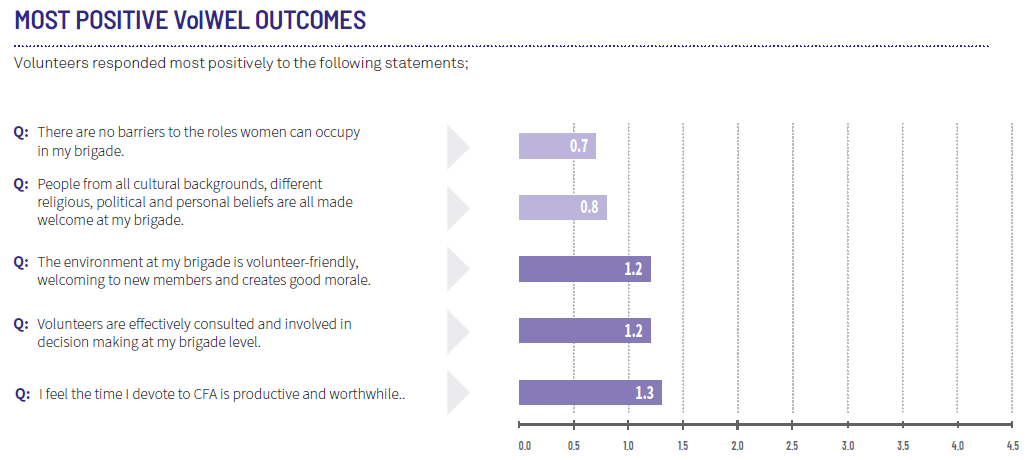
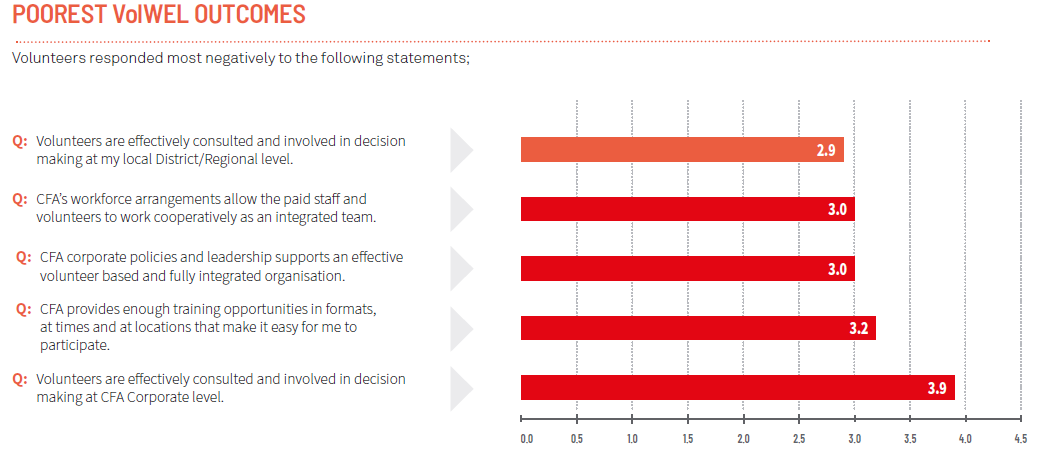
Now, rather than turning the results into a stick to beat people over the head with, the poorest results actually present the perfect opportunity to assist with the prioritisation of upcoming actions for us to work with CFA on. It will be the corresponding improvements that can be made to address the areas of highest dissatisfaction that will form the holy grail of changes required to pivot to a more volunteer focussed organisation in the future. This year’s survey will shortly be commencing, and I urge all volunteers to participate and lend their voice to this incredibly important work.
You have heard me speak regularly about strengthening the role of groups, and why this is so important to our future organisational culture. And I include in that work any initiatives aimed at supporting, empowering and improving trust for all levels of volunteer leadership - including at brigade level with Captains, Lieutenants and other senior officers. In fact, it is this paradigm shift that will be central to embracing the opportunities ahead.
And below all the figures and statistics in the results – are a treasure trove of qualitative comments that provide heartfelt examples and personal perspectives direct from volunteers, on many of the things that matter the most to them. Both the qualitative and quantitative results are critical to understanding volunteer views, but equally important in informing our advocacy back to CFA and Government on what is required to better meet the needs of CFA volunteers.
For example, qualitative comments repeatedly highlight the perception of double standards, where strict adherence to paperwork, rules and procedures are often enforced from above to meet corporate needs. But when it comes time to meet some of the things vitally important to volunteer and community needs - sadly many volunteers are reporting that it is common practice for those needs not to be addressed with perhaps the same vigour or priority.
This highlights the palpable perception amongst volunteers that the ‘needs’ of the modern organisation is too often at odds and in stark contrast with the needs of its volunteers and the communities they serve. One of the biggest risks to CFA’s future sustainability will come down to whether volunteers from our 1,219 brigades across Victoria see themselves reflected and mirrored back to them through the organisations future priorities, strategies, budgets and policies.
To paraphrase a 1973 Victorian Government publication commissioned by the then Chief Secretary; This is the volunteer fire fighter. An ‘organisation person’ if ever there was one, for without the organisation provided by the C.F.A. the volunteer would not be the force in the defence of their community that they are today. But, more important, without them the C.F.A. would not have achieved its present standing.
In the fully rounded description they cannot be seen apart, for each has helped in the evolution of the other. Without this united force it would be the people of Victoria who would be the losers.
VFBV VESEP Support
The 2020 Volunteer Emergency Services Equipment Program (VESEP) has been extended until 16 November to help Brigades and Groups have more time to organise their applications due to the COVID-19 restrictions.
VESEP provides grants of $2 for $1 of Brigade/Group funding to assist Brigades and Groups in acquiring a wide range of ancillary equipment in recognition of your significant contribution in supporting Victorian communities in times of emergency.
The program started back in 2000 as CSESP (Community Safety Emergency Support Program), in close consultation with VFBV, as a way of recognising the incredible commitment volunteers have to their communities. VFBV recognised the benefits to volunteers in having an annual grants program with an application process that was easy to follow with minimal paperwork and local input.
VFBV has refreshed the VFBV Application Help Pack and the pack is now divided into easily downloadable sections for your convenience. Visit the VFBV website to download your copy.
If you require assistance with your Application please contact your VFBV State Councillor, VFBV Support Officer or VFBV Office. VFBV wishes all Brigades and Groups well with applications.
2020/21 Championships
With the current COVID-19 restrictions in Victoria, it is still not clear whether we will be conducting local competitions or State Championships next year. VFBV however is planning for the best-case scenario and that restrictions will ease in time for these events to go ahead.
Obviously this will be dependent on Government restrictions and the directions of the Chief Health Officer at the time.
It is highly likely that if local competitions and Championships are permitted, they will have to be conducted under specific Government health guidelines. VFBV delegates and CFA are working closely with the Championship Host Committees in pre planning to manage the impact of COVID-19 restrictions and requirements to conduct the events in order to comply with any potential health guidelines – and information on this will be forwarded to entered brigades once the guidelines become clearer.
VFBV has recently emailed Urban Competition Associations and District Rural Competition Committees to inquire if subject to Government advice and restrictions if they intend to conduct a competition; and VFBV has emailed all Rural and Urban competition brigades to inquire if subject to Government advice and restrictions they intend to compete.
Responses are due by 30th October 2020. This information is required to support development of the COVID-19 Plan that will need to be submitted to the health department.
You can download the forms to be returned to VFBV here.
The 2020 Annual Volunteer Welfare & Efficiency Survey is coming soon
Pre-register your email address to be notified the minute the survey opens at www.surveymonkey.com/r/vfbvregister2020
Alternatively, send an email to This email address is being protected from spambots. You need JavaScript enabled to view it. indicating that you would like to participate in the 2020 survey.
Fellow brigade members who don’t have access to email? Fax your name and postal address to VFBV (03) 9886 1618 or call the VFBV office on (03) 9886 1141 and we will post you a copy to complete when the survey opens.
Nominations open for 2021 AFSM nominations
Nominations are now open for the Australian Fire Service Medal (AFSM) to be awarded as part of the 2021 Queen’s Birthday Awards.
The AFSM honours the distinguished service of members of fire services, including CFA volunteers who make an exceptionable contribution to their communities. The AFSM recognises those whose service is above and beyond the normal zealous and faithful discharge of normal or ordinary service, either in the short or long term.
CFA volunteers are often modest and reluctant to seek out recognition for the service they have provided to their community and may not have a realistic appreciation of the impact they have had on CFA, their community, within VFBV or your Brigade or Group. They’re not in it for the honour or glory, but it’s up to each of us to ensure we take the time to say ‘thank-you’ to those people who have stepped up and help inspire us all to do better.
If you know a quiet achiever who has contributed to CFA, who goes above and beyond what could be reasonably expected of someone in a similar position, consider nominating them for an AFSM.
Read more about the AFSM nomination process on the VFBV website.
Nominations close on 1 November 2020.
Australia Day Grants
The Australia Day Council have recently announced a COVID Safe Australia Day Grant scheme, where not for profits mays apply for a grant up to $20,000 to support running an Australia Day Community event. Submissions close 5pm on 9th November 2020. We believe CFA brigades/groups would be eligible.
These grants are intended to support the local community and local businesses by using local catering and local shops for supplies etc. for the event planning and running and the grant can cover everything you’d need to make the event COVID-safe. They are intended to support events that allow communities to come together and reflect, respect and celebrate the individual and collective efforts of Australians who put the wellbeing of others before themselves, supported their communities in a time of need and rose to the challenges of an extraordinary year – because we’re all part of the Story of Australia.
While current restrictions prevent brigades from doing these type of events at present, CFA policy may change later in the year meaning those who plan ahead may have a great opportunity to secure a grant. We suggest you include in your application that your event would be contingent on CFA approval which you would not be able to apply for until closer to the date.
If you are interested in exploring this opportunity, details can be found on the Australia Day Council website.
Details of this grant can be found in this PDF.

Recent articles on the VFBV website
COVID-19 Financial Support Resources
Nominations open for 2021 AFSM
Enjoy the VFBV monthly newsletter
If you enjoy reading the VFBV newsletter each month, why not share it with your fellow volunteers?
Either share this page with others who may enjoy the articles or encourage other volunteers to sign up to receive their own copy each month here.
With the current COVID-19 restrictions in Victoria, it is still not clear whether we will be conducting local competitions or State Championships next year. VFBV however is planning for the best-case scenario and that restrictions will ease in time for these events to go ahead.
Obviously this will be dependent on Government restrictions and the directions of the Chief Health Officer at the time.
It is highly likely that if local competitions and Championships are permitted, they will have to be conducted under specific Government health guidelines. VFBV delegates and CFA are working closely with the Championship Host Committees in pre planning to manage the impact of COVID-19 restrictions and requirements to conduct the events in order to comply with any potential health guidelines – and information on this will be forwarded to entered brigades once the guidelines become clearer.
VFBV has recently emailed Urban Competition Associations and District Rural Competition Committees to inquire if subject to Government advice and restrictions if they intend to conduct a competition; and VFBV has emailed all Rural and Urban competition brigades to inquire if subject to Government advice and restrictions they intend to compete.
Responses are due by 30th October 2020. This information is required to support development of the COVID Plan that will need to be submitted to the health department.
Available for download at the bottom of this page if required are:
For Brigades:
- Rural Competing Brigades - Intention to compete form
- Urban Competing Brigades - Intention to compete form
Please note these forms are not entry forms, only an indication that your brigade potentially could be competing, and the potential number of your Brigade’s members attending. Entry forms will be forwarded at a later date.
For Competition Committees and Associations
- Rural District Competition Committees - Intention to hold competition form
- Urban Competition Associations - Intention to hold competition form
- Urban Competition Committees - Competition Application Form 2020/21
All completed forms can be sent via email to Jenni Laing This email address is being protected from spambots. You need JavaScript enabled to view it.


